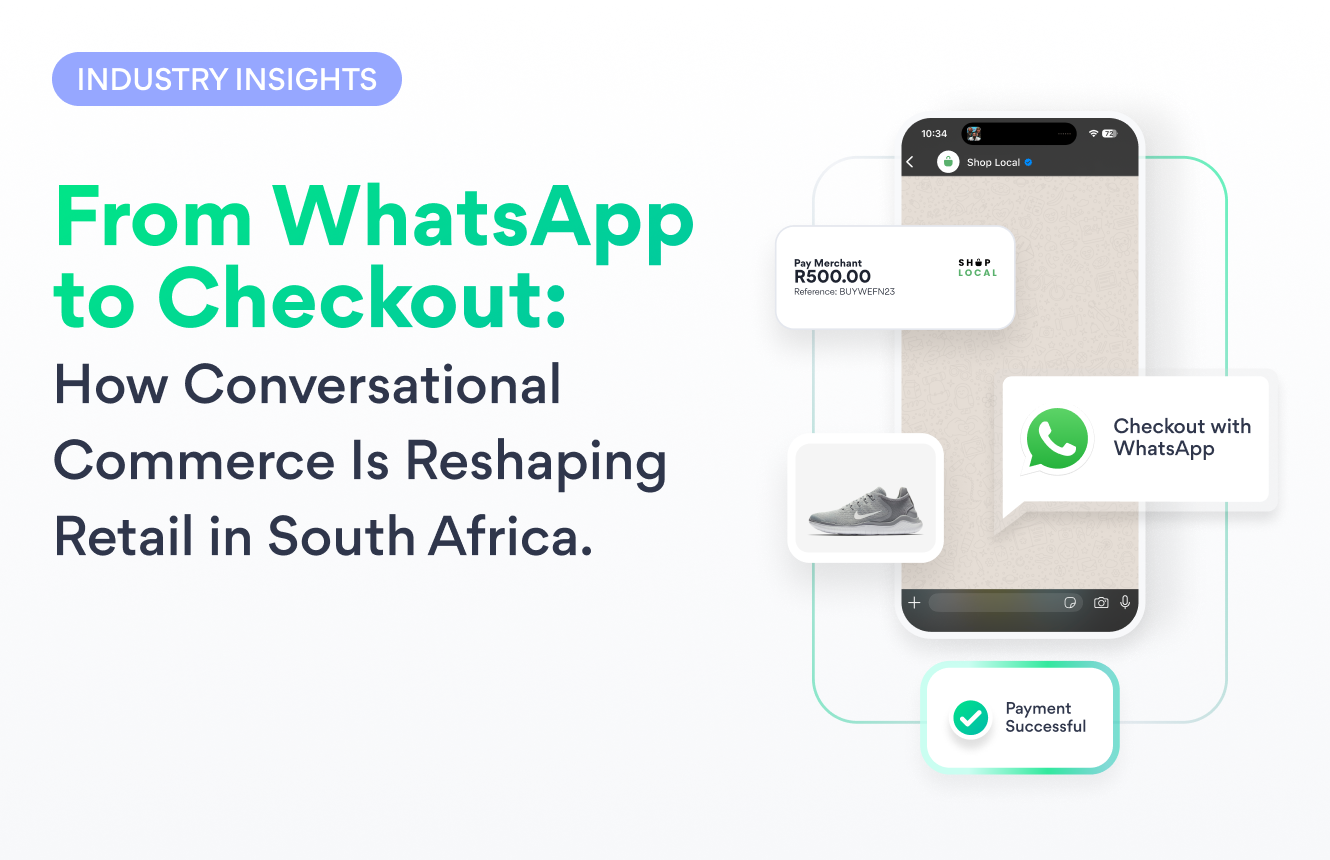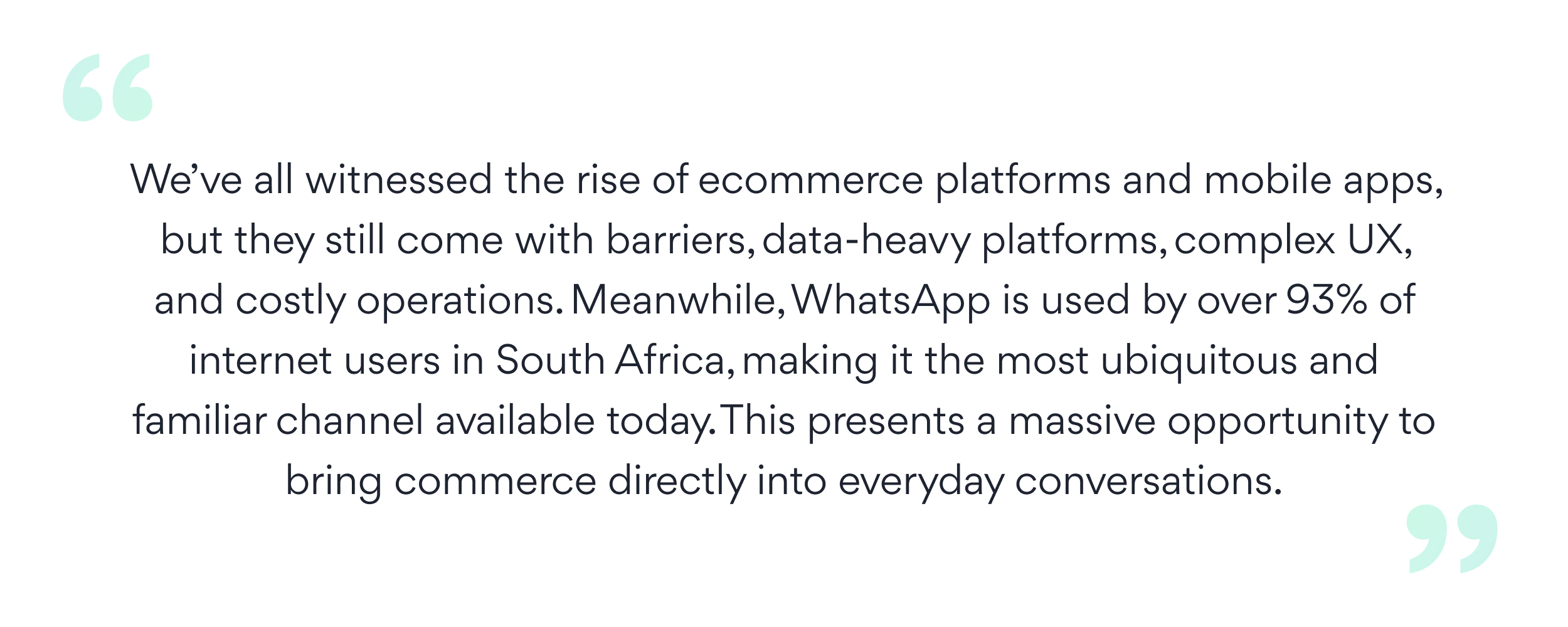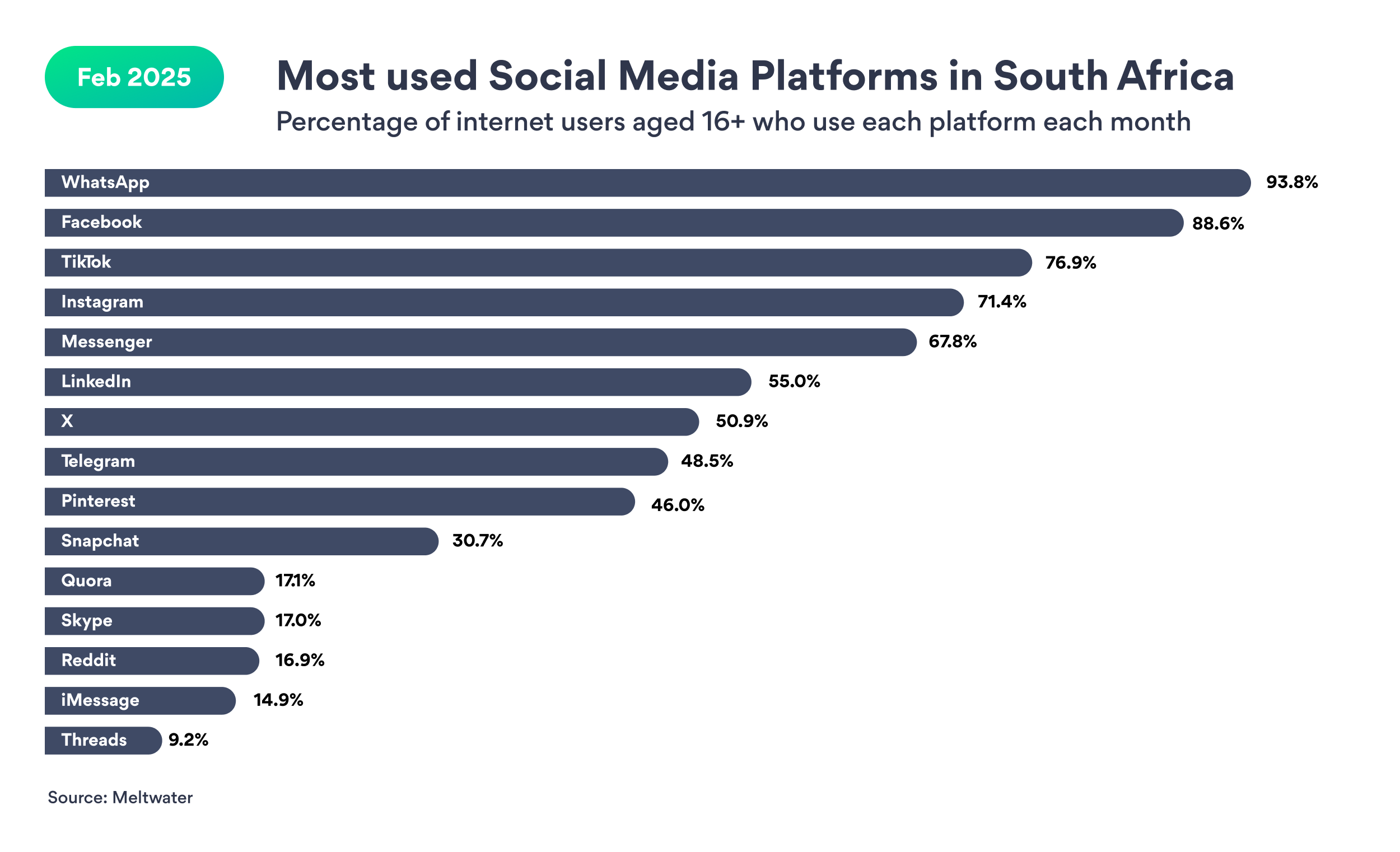From WhatsApp to Checkout: How Conversational Commerce Is Reshaping Retail in South Africa.
October 13, 2025
Return to blog listOctober 13, 2025
Return to blog list
Retail in South Africa is undergoing a fundamental transformation. Consumer expectations are shifting towards speed, convenience, and personalised experiences. Conversational commerce is at the forefront of this change, enabling customers to engage with businesses directly through the messaging apps they already use every day. From chatbots and voice assistants to human support agents, businesses can guide consumers through seamless shopping journeys.
What makes conversational commerce truly transformative is the integration of digital payments within these interactions. By allowing customers to complete purchases within the chat, businesses reduce friction, enhance the user experience, and open new pathways for revenue. In essence, it is not just about messaging; it is about turning conversations into meaningful commercial outcomes.
South Africa is particularly well positioned for this shift. Smartphones are central to daily life, and WhatsApp, the country’s most widely used messaging platform, sits at the heart of this digital ecosystem. According to the Social Media Landscape Report 2025 by World Wide Worx and Ornico, WhatsApp continues to dominate messaging in South Africa. For businesses, this is more than an opportunity; it is a call to rethink how they engage with customers, how they deliver value, and how they capture sales in the digital age.
Data from DataReportal shows that by early 2024, South Africa had 118.6 million active smartphones, with a penetration rate of 195.4%. The same source revealed that the country had 45.34 million internet users, representing a penetration rate of 74.7%.
The Rise of Conversational Commerce in South Africa
Conversational commerce is no longer a niche experiment. Globally, businesses are rethinking how they engage with customers, moving beyond traditional websites and apps to meet customers in the spaces where they already spend their time. Messaging platforms such as WhatsApp, Facebook Messenger, and WeChat have become central hubs for commerce, enabling real-time interactions, personalised recommendations, and frictionless payments.
In South Africa, merchants are increasingly adopting these tools to meet consumers’ expectations for speed and convenience. Richard Eberlein, Managing Executive for Customer & Growth at HomeChoice, believes chat commerce is on track to overtake traditional e-commerce. He explains:

Case Study: Prepaid24, Chat Inc, and Ozow
An example of this shift is the collaboration between Prepaid24, Chat Inc, and Ozow, which enables South Africans to purchase prepaid electricity and other essential services directly through WhatsApp. Customers can engage in a simple conversation, select the service they need, and complete the payment.
According to Ben Lindeque, Co-founder and Business Architect of Prepaid24, the platform is designed to tackle the dual challenges of digital exclusion and electricity access in South Africa.

By enabling such essential transactions on the country’s most widely used messaging app, the initiative highlights how conversational commerce can bridge everyday needs with digital convenience.
This integration demonstrates the power of conversational commerce in action. It transforms everyday messaging into a seamless commercial experience, reduces friction, and allows businesses to connect with customers in a natural, intuitive way. For South African merchants, this is more than a technological innovation, it is an opportunity to design shopping experiences that align with how customers already live, communicate, and transact.
Why Conversational Commerce Matters:
Turning Chats into Checkouts
Customers increasingly expect shopping experiences that are fast and convenient. By integrating payments into messaging platforms like WhatsApp, retailers can simplify the purchase process, reduce friction, and make it easier for customers to complete transactions without added steps.
Conversations that Build Relationships
Beyond transactions, chat commerce enables a two-way dialogue. Personalised recommendations, real-time updates, and responsive support transform routine purchases into long-term relationships.
From Engagement to Growth
Integrated payments inside conversations are a catalyst for sales. Fewer abandoned carts, higher conversion rates, and more repeat purchases all translate into tangible growth for merchants.
South Africa’s Mobile-First Advantage
With WhatsApp embedded in the daily lives of more than 93% of internet users, conversational commerce is uniquely positioned to scale here. In a market defined by mobile-first behavior and an entrepreneurial spirit, South African businesses have the chance to set the pace for global adoption.

How Ozow enables conversational commerce
At the core, conversational commerce is centered on turning customer interactions into seamless transactions within the messaging experience. This is where Ozow plays a critical role. By embedding fast, secure, and mobile-first payment solutions directly into messaging platforms like WhatsApp, Ozow ensures that conversations can convert into transactions efficiently.
For consumers, this creates a frictionless journey where they can discover, decide, and pay all within the same thread. For merchants, it transforms every customer's interaction into an opportunity to drive sales, loyalty, and growth.
As conversational commerce continues to reshape retail in South Africa, Ozow is powering the payment experiences that make it possible: safe, seamless, and designed for a mobile-first nation.
Looking Ahead
Conversational commerce is only at the beginning of its growth curve in South Africa. With WhatsApp already embedded in the lives of more than 90% of internet users, integrating payments directly into chats has the potential to transform how retail operates. According to PR Newswire, the conversational commerce transaction value in the country is expected to increase from US$1.3 billion in 2023 to reach US$2.9 billion by 2028, reflecting both consumer demand for convenience and merchant appetite for new growth channels.
As more businesses embrace this shift, payments will become the linchpin that turns conversations into conversions. For retailers, the opportunity lies not just in adopting new technology, but in reimagining the customer's journey itself. For consumers, it promises shopping experiences that are simple, personal, and seamless.